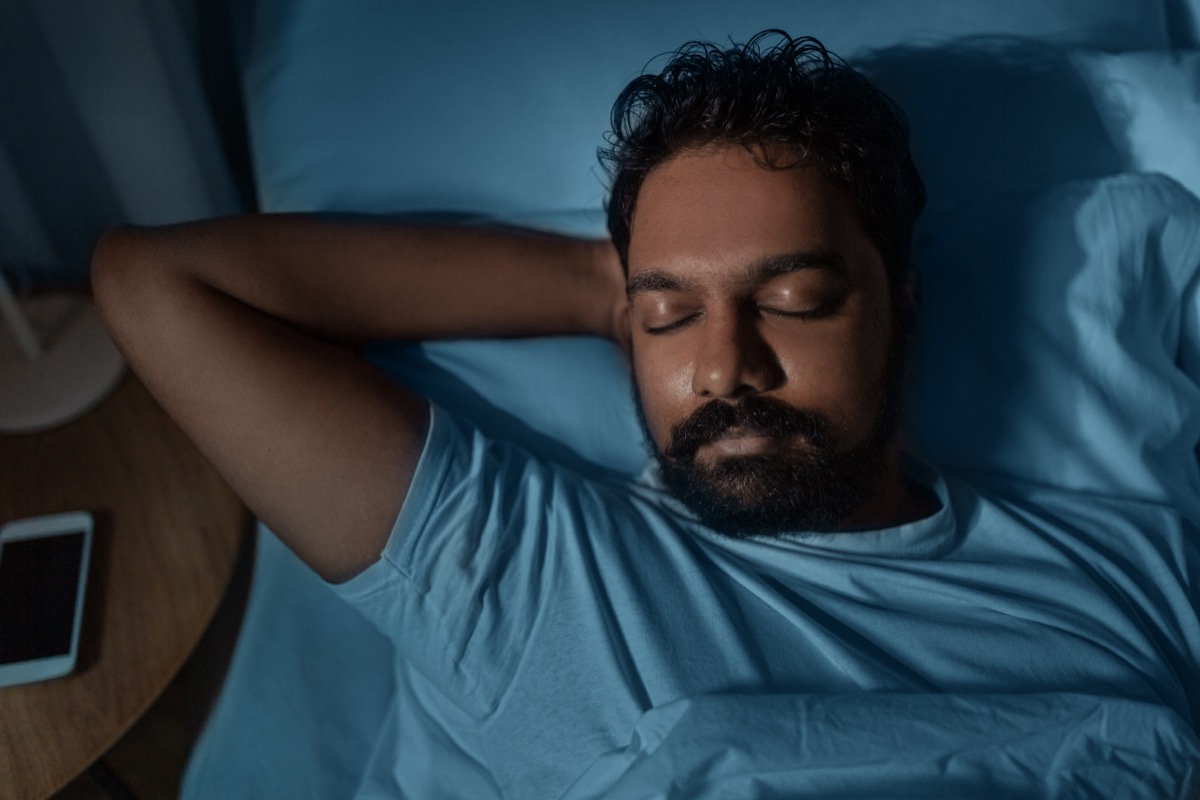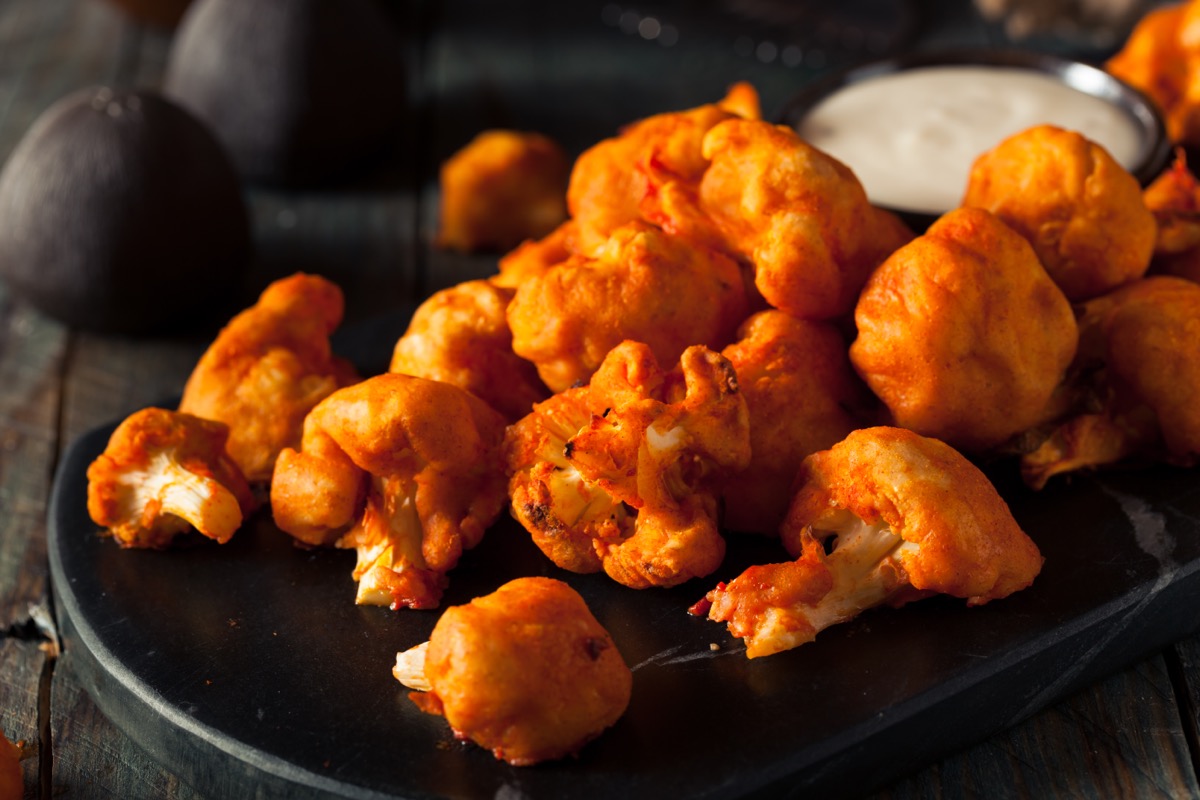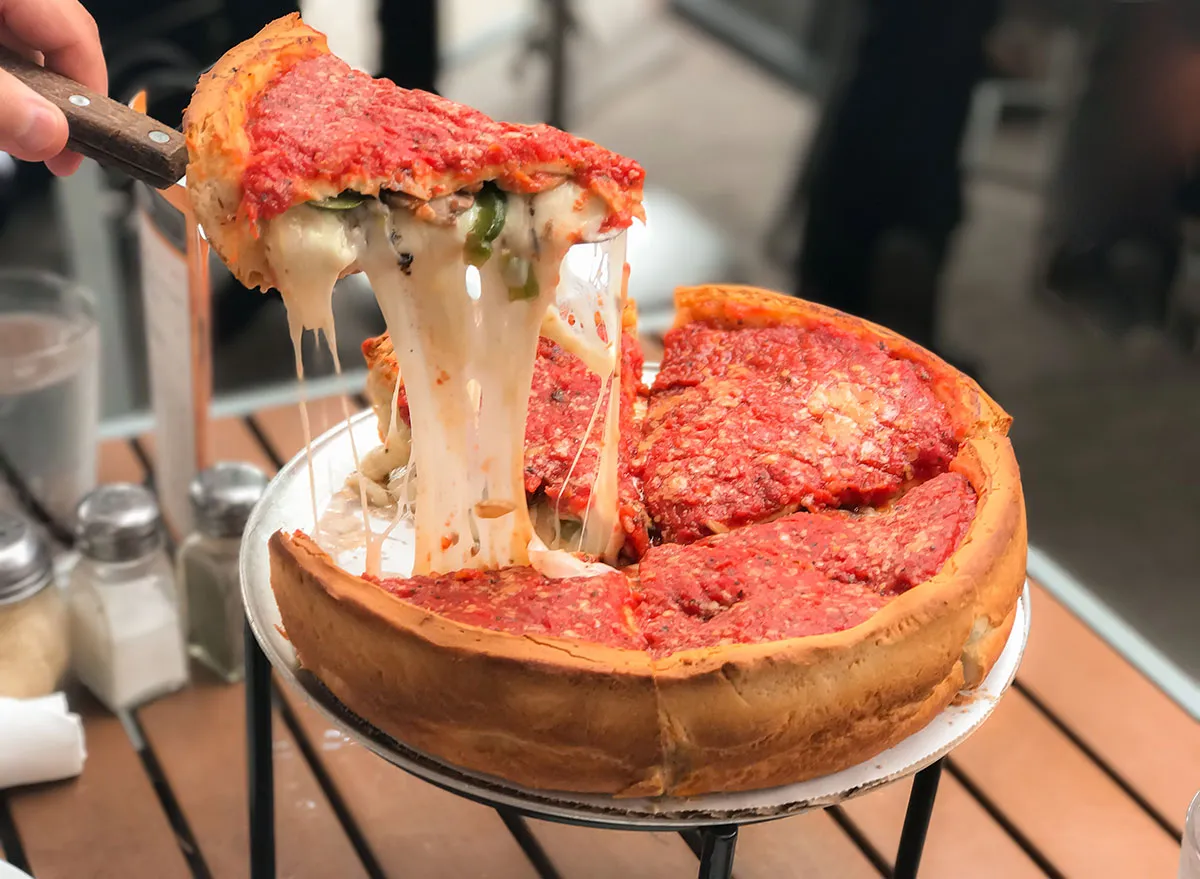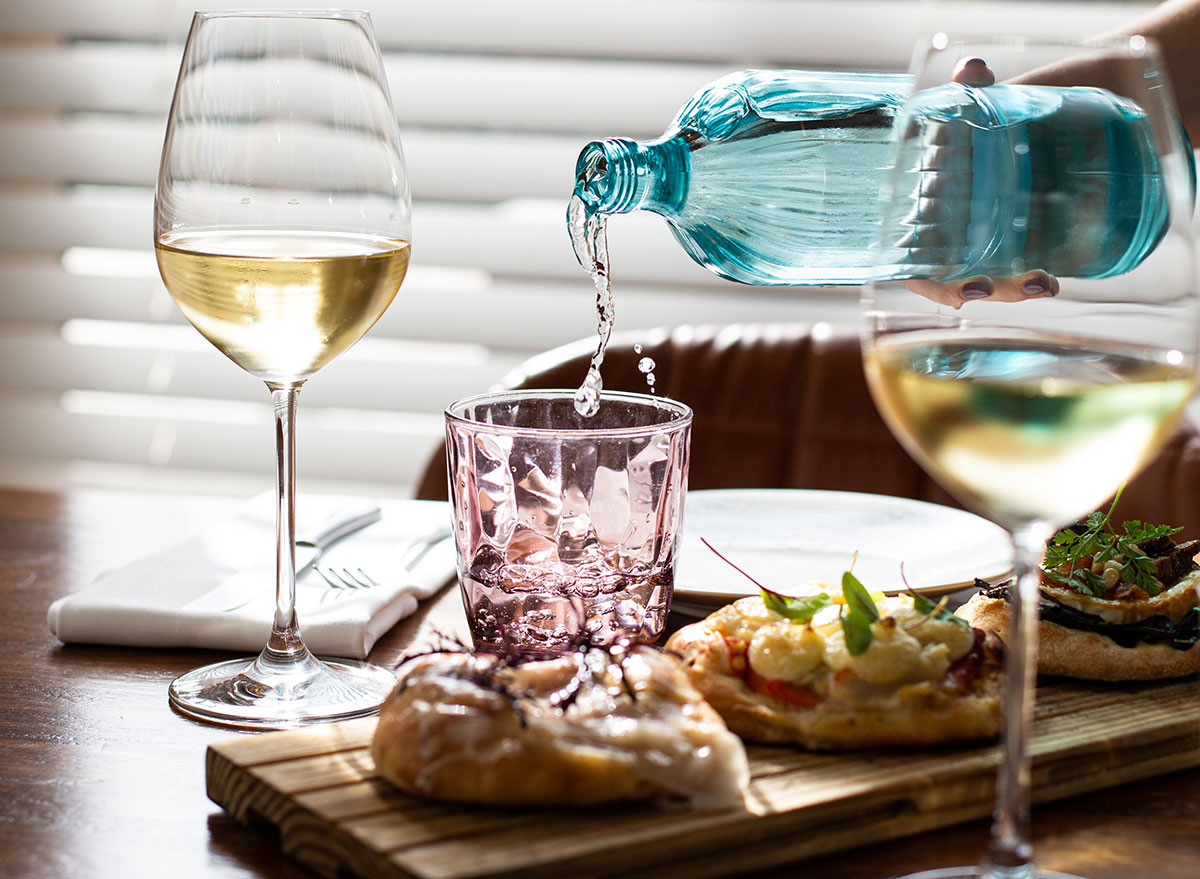Eating Habits to Avoid Before Bedtime, Says Science

Getting quality sleep is critical for maintaining overall health. When you sleep, that's your body's time to repair muscles, organs, and other vital cells. Sleep is also critical for remembering information you learned that day as well as keeping your mental health in check.
These are just a few key reasons why it's so important you get adequate rest each night, but there are certain eating habits that could offset your bedtime routine and ultimately disrupt your sleep. To help ensure you experience quality sleep, we created a list of just four eating habits that could sabotage this restorative process. Then, don't miss Popular Foods That Are Ruining Your Sleep, Says Science for more helpful, sleep-inducing tips.
Skip the spicy meal.

If you want a good night's rest, it's best to avoid the spicy buffalo cauliflower wings you like to whip up in your air fryer right before your head hits the pillow—even if you're someone who can handle the heat. This is especially important for people who are susceptible to heartburn or acid reflux. Eating spicy foods can trigger heartburn and lying down shortly after can exacerbate symptoms.
For more tips on how to avoid heartburn, don't miss the 28 Best and Worst Foods for Acid Reflux.
Try not to eat a ton of carbs.

Did you know that your body's metabolic rate slightly slows down at night? Consuming a ton of refined carbs such as deep-dish pizza or a big bowl of potato chips as you prepare to go to sleep isn't the best idea, because these types of foods are harder to digest, so it's not ideal to eat them right as your body's metabolism is shifting gears.
If you need a snack before bed, try eating a small amount of complex carbs such as one serving of full-fat Greek yogurt with some nuts and a little granola. Satiating but not gut-busting, this is a great choice to help induce sleep.
Don't go to bed with hunger pangs.

Late-night munching isn't encouraged if it means you'll be overeating, however, if you haven't met your caloric needs for the day, you won't want to go to bed on an empty stomach. Going to bed hungry could wreak havoc on your sleep cycle. Have you ever tossed and turned with a grumbling stomach and felt like you couldn't relax? That's a sign to eat a little snack before your head hits the pillow.
Someone with diabetes should be especially cognizant of this, as not eating enough could seriously offset their blood glucose (sugar) levels and disrupt their sleep. Low blood sugar levels could make you feel restless, have nightmares, sweat profusely, and feel irritable or even confused upon waking up.
Skip the nightcap.

Sipping on a glass of wine before bed sounds like a great way to lull you to sleep, in theory, however, alcohol can actually inhibit you from entering one of the most restorative states of sleep: the REM cycle. REM or rapid eye movement is the stage of sleep that's essential for cognitive functions such as learning, consolidating memories, and creativity.
The average person enters REM between four and five times per every eight hours of sleep, however, drinking alcohol just before bed can suppress the first two cycles. This is because of alcohol's sedative properties—it can cause you to fall into a deep sleep quickly rather than naturally progressing into it. As a result, this could decrease overall sleep quality.
For more, don't miss The 5 Absolute Best Foods to Eat For Better Sleep, then, don't forget to sign up for our newsletter.








